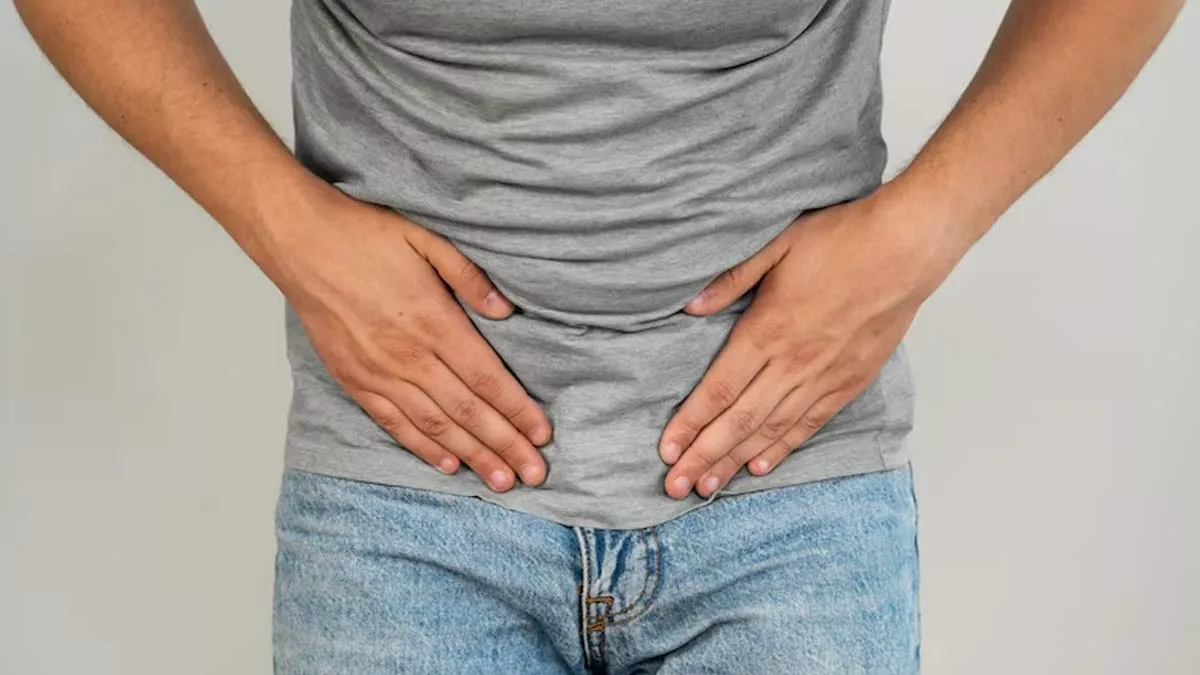
As the cold months set in, certain health conditions can become more challenging to manage, including Benign Prostatic Hyperplasia (BPH). Benign Prostatic Hyperplasia is a non-cancerous enlargement of the prostate gland that typically occurs as men age. The prostate, a small gland located below the bladder and surrounding the urethra (the tube through which urine exits the body), plays a crucial role in the male reproductive system by producing a fluid that nourishes and transports sperm. In BPH, the prostate gland grows larger, which can press against the urethra and obstruct the flow of urine. BPH can be particularly troublesome in winter due to factors like reduced physical activity and increased urine production triggered by cold weather.
Table of Content:-
To understand more about the BPH-winter connection and how to manage it during winter months, OnlyMyHealth team interacted with Dr Suriraju V, Senior Consultant Urologist and Founder, Regal Hospital.
Understanding Benign Prostatic Hyperplasia
“Benign Prostatic Hyperplasia, or BPH, is a common condition among men as they age,” explains Dr Suriraju. “It affects nearly 50% of men over the age of 50, and by the age of 80, around 90% of men are likely to experience some symptoms of BPH. It occurs when the prostate gland, a small gland surrounding the urethra, becomes enlarged. This enlargement gradually presses against the urethra and interferes with the flow of urine.”
The condition often presents as urinary symptoms such as:
- Frequent urination, especially at night (nocturia).
- Difficulty starting or stopping urination.
- Weak urine stream.
- A persistent feeling that the bladder isn’t fully emptied.
While BPH isn’t cancerous, its symptoms can significantly impact the quality of life, making awareness and management essential.
Also read: Risk, Symptoms And Causes of Benign Prostatic Hyperplasia
The Winter Connection

“Yes, winter weather can indeed worsen symptoms for people with BPH,” notes Dr Suriraju. “In cold weather, the body produces more urine to regulate body temperature, leading to increased urgency and frequency, especially at night.”
Other factors exacerbate the problem:
Reduced Physical Activity: “People tend to stay indoors and move less during winter, leading to fluid retention in the body. This extra fluid can strain the bladder and increase bathroom trips.”
Cold-Induced Changes: “Cold temperatures cause blood vessels to constrict, reducing blood flow around the bladder and prostate. This can lead to difficulty urinating and discomfort.”
These seasonal changes can make winter particularly challenging for men with BPH. Recognizing the connection allows individuals to take steps to minimise the impact.
Managing BPH Symptoms in Winter
There are several ways to ease BPH symptoms during colder months. Dr Suriraju shares his recommendations:

Dress Warmly and Avoid Exposure to Cold
Keeping warm can prevent the bladder from becoming overly sensitive to cold weather. Wear layered clothing, especially when going outdoors.Limit Caffeine and Alcohol
Both caffeine and alcohol act as diuretics, increasing urine production and irritating the bladder. Reducing or avoiding these beverages, particularly in the evening, can help.Stay Physically Active
Light exercises, even indoors, can prevent fluid retention and reduce pressure on the bladder. "Activities like walking or stretching improve circulation and help with symptom management," Dr Suriraju said.Control Fluid Intake
Stay hydrated, but sip small amounts throughout the day instead of drinking large amounts at once. Reduce fluid intake a few hours before bed to minimise nocturia.Adopt a Prostate-Friendly Diet
Foods rich in anti-inflammatory and antioxidant properties, such as fruits, vegetables, nuts, and fish, can support prostate health. Dr Suriraju recommended to avoid processed and spicy foods, which may irritate the bladder.
Also read: Suffering From Enlarged Prostate? Here Are Some Food To Avoid
Advanced Treatment Options
For those whose symptoms persist despite lifestyle changes, advanced options like Rezum Therapy offer relief. “Rezum Therapy is a minimally invasive procedure that uses steam to reduce the size of the prostate,” explains Dr Suriraju. “It is quick, outpatient-friendly, and offers significant symptom relief with minimal downtime.”
Conclusion
Winter can present unique challenges for men with BPH, but understanding these triggers and adopting proactive strategies can help. From staying warm and active to considering advanced treatments like Rezum Therapy, managing BPH symptoms during colder months is possible. As Dr Suriraju advises, “It’s important to work with your doctor to find the best approach for your individual needs and ensure your quality of life isn’t compromised by seasonal changes.”
Also watch this video
How we keep this article up to date:
We work with experts and keep a close eye on the latest in health and wellness. Whenever there is a new research or helpful information, we update our articles with accurate and useful advice.
Current Version